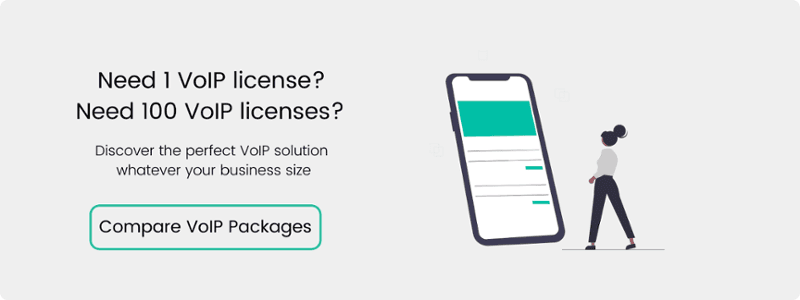How to select the best UK VoIP Provider?
Nov 22, 2024
VoIP Provider Questions
VoIP is booming. Faster internet connections mean that the technology is rapidly replacing analogue as the default option. But how do you work out who the best UKVoIP providersare? We’ve looked at the key questions you should ask.

What are your requirements?
First, you need to work out what your requirements are. The most important and complicated assessment will be your bandwidth requirements. Get this wrong and you may find yourself either paying for more than you need or experiencing ongoing problems with call quality.
You need an understanding of your company’s call needs which includes the total number of phones you have in the business, how many people will be making calls simultaneously and if there are likely to be periods in which activities surge.
How does your organisation use the internet? Is it for general surfing or are people going to be regularly transferring large files? One of the assessments we can use at Amvia is to offer statistics on data usage to design the correct capacity requirements for your business. You can also get around this issue by adding a dedicated connection for VoIP calls.
What features do you need?
Each provider will offer its own range of features and services. These might include video conferencing, call forwarding, voicemail to email, data packages, voice recording and many others. Some features cost more, while others will be offered as part of the basic options. When comparing providers, think about all of the different features you could conceivably use and look for those packages which offer them cost-effectively.
What happens if things go wrong?
Because the quality of the service is often dependant on your internet connection, you should think about what happens if it fails. When screening prospective VoIP providers, ask what redundancy measures they can offer. For example, if the internet were to go down, will you still be able to make and receive calls? Many providers will offer a feature called ‘call continuity’ in which calls are forwarded to employees’ mobile phones if the main internet connection fails. This will deliver seamless communication even if you lose internet connection.
Will I get what I’m promised?
Many providers will lock you into a long-term contract – such as a year or more. Getting out of this contract early can be difficult and expensive. Others, however, will provide a limited trial period in which you can cancel your order free of charge. So, if the user experience is not everything you hoped for, there’s nothing to stop you from backing out and looking for something else.
Not only does this provide an important level of reassurance, but it also suggests a provider which is confident in their service.
Signing a service level agreement is another useful backstop. This is an agreement which determines the quality of service you should expect and will cover things such as uptime, service quality and bandwidth. This protects you in case they are unable to consistently meet these standards.
Do they offer ongoing support?
Many providers will offer free training and support to get you started. They will also have helplines and online support options designed to answer any of your queries. Unfortunately, they will not always work in this way. You should check the opening times of their support services to ensure they will be available as and when you need it.
What do their customers say?
Most reputable providers will be more than happy to provide case studies, testimonials or other references. If they are hesitant, then there may be a very good reason for this. Check these references to ensure the provider can deliver the range of functionality and quality of service you’re looking for.
Let the web be your friend. The internet can be an important research tool. Many sites come with customer ratings, so you can get an idea of how popular it is. For example, if you have two seemingly identical providers, but one has an average star rating of four and the other only has 2.5, that will help you choose between the two.
Social media can also be useful. As customers, we often voice our complaints publicly online. Run a quick search for any providers to see what their customers are saying. The odd negative comment may be unavoidable, but if you see lots of complaints relating to the same issues, it gives you a good idea of the kind of problems the provider may experience.
Can it scale?
One advantage of a cloud-based system is that it can grow or contract with your business. This is great if you’re a growing enterprise because your phone system can grow organically alongside you. An on-premises installation, on the other hand, may require more expensive upgrades to deliver the capacity you need as the business expands. Remember, you’re not just thinking about your current business needs, but also tomorrow’s.
What about uptime?
A common area which often gets overlooked is the issue of uptime. This is a term used to determine the amount of time a service is available. A good provider may well offer an uptime guarantee which commits it to meet a certain level, but you might also want to look at their previous performance. Ask about the uptime they achieved during the previous year or quarter. If a provider consistently exceeds its own uptime guarantee it’s a good sign that they are consistently able to over-deliver.
Choosing thebest UK VoIP providers
There is no universal answer to the question: who are the best UK VOIP providers? But there is a way to find the best one for you. It will all depend on your requirements, local network connection topography and how much you’re willing to spend. These are some of the questions you should be asking to determine which one is the best.
At Amvia, we work with you to understand your needs and find the provider that most closely matches your requirements. Get in contact with us to see how we can help you find your ideal VoIP provider.
More Articles
Relevant articles about Fargo




